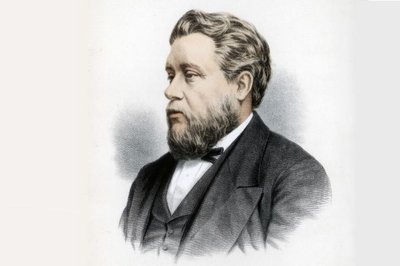Thoughts for the Day
Wednesday, 13th November 2024: Psalm 77
Preacher Psalm 77 Spurgeon Trust Help
Reading : Verses from Psalm 77

God’s Mighty Deeds Recalled. To the leader: according to Jeduthun. Of Asaph. A Psalm.
I cry aloud to God,
aloud to God, that he may hear me.
In the day of my trouble I seek the Lord;
in the night my hand is stretched out without wearying;
my soul refuses to be comforted.
I think of God, and I moan;
I meditate, and my spirit faints.Selah
You keep my eyelids from closing;
I am so troubled that I cannot speak.
I consider the days of old,
and remember the years of long ago.
I commune with my heart in the night;
I meditate and search my spirit:
‘Will the Lord spurn for ever,
and never again be favourable?
Has his steadfast love ceased for ever?
Are his promises at an end for all time?
Has God forgotten to be gracious?
Has he in anger shut up his compassion?’Selah
And I say, ‘It is my grief
that the right hand of the Most High has changed.’
I will call to mind the deeds of the Lord;
I will remember your wonders of old.
I will meditate on all your work,
and muse on your mighty deeds.
Your way, O God, is holy.
What god is so great as our God?
You are the God who works wonders;
you have displayed your might among the peoples.
With your strong arm you redeemed your people,
the descendants of Jacob and Joseph.Selah
When the waters saw you, O God,
when the waters saw you, they were afraid;
the very deep trembled.
The clouds poured out water;
the skies thundered;
your arrows flashed on every side.
The crash of your thunder was in the whirlwind;
your lightnings lit up the world;
the earth trembled and shook.
Your way was through the sea,
your path, through the mighty waters;
yet your footprints were unseen.
You led your people like a flock
by the hand of Moses and Aaron.
(Lectionary, New Revised Standard Version)
Thoughts
I have always liked the work of Charles Spurgeon, a 19th century Baptist minister who at the age of 16 preached his first sermon as pastor of Waterbeach Baptist Chapel near Cambridge. Within two years, the church grew from 40 to 400 and by the age of 22 he was probably the most famous preacher in the world. Part of his charm was his down-to-earth style.
Spurgeon says this of Psalm 77: "This Psalm has much sadness in it, but we may be sure it will end well, for it begins with prayer, and prayer never has a bad issue.". Asaph in his agony of need cries aloud to God, continuing in great distress all day and night. Words of comfort were no help, and he racks his brain as to why God doesn't answer him. Spurgeon imagines what Asaph might be thinking:
- "Has God forgotten to be gracious? Has El, the Mighty One, become great in everything but grace? Does he know how to afflict, but not how to uphold? Above all, can he forget to exercise that attribute which lies nearest to his essence, for he is love? Has he in anger shut up his tender mercies? Are the pipes of goodness choked up so that love can no more flow through them? Do the bowels of Jehovah no longer yearn towards his own beloved children?"
Finally, Asaph realises that his thoughts are sinful, and he directs them to those times God has helped His people. He rescued them from slavery in Egypt; brought them through the Red Sea; and led them like sheep through His prophets. With that the psalm abruptly ends, and we must assume Asaph is consoled that God will answer his prayers as well.
↠ We can do no less than Asaph and trust that God who has nurtured and saved us all our life will deal compassionately with our latest crisis!
Prayer
Lord God,
when we blame You for things going wrong,
and for Your seeming silence at such times,
help us to remember that You love us
and are always there to act as a guide.
May we look back and see how sometimes
Your silence has been for a good purpose.
Mah we also recollect all those times
when You have rescued us
and blessed our endeavours.
So may we learn to completely trust You.
Amen.
You might like to hear Psalms 51-100, read by David Suchet. You can stop and start it at the psalm you want:
- Psalms 51-100 (New International Bible)
If you would like to discover a little more about Charles Spurgeon, this site might help: